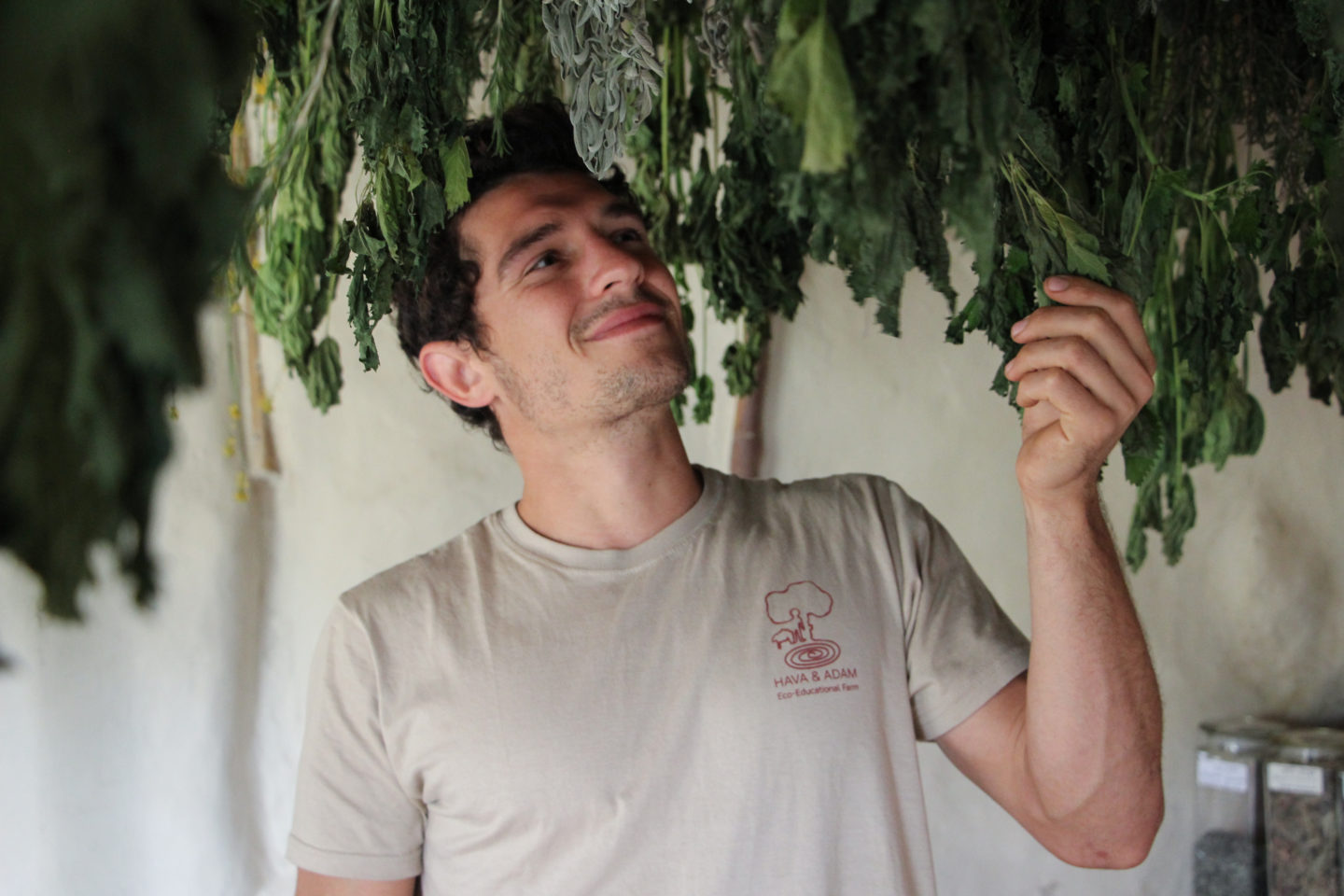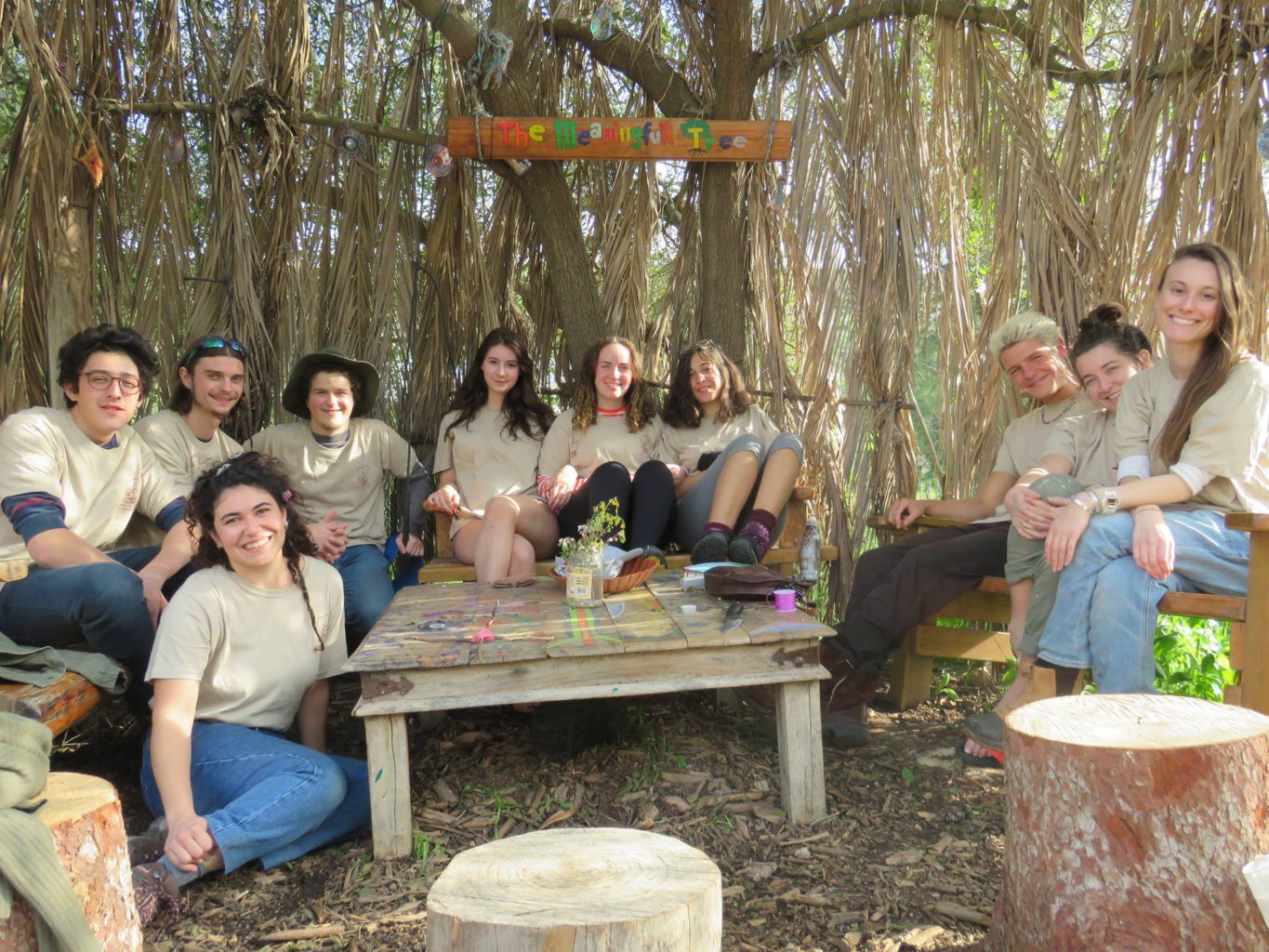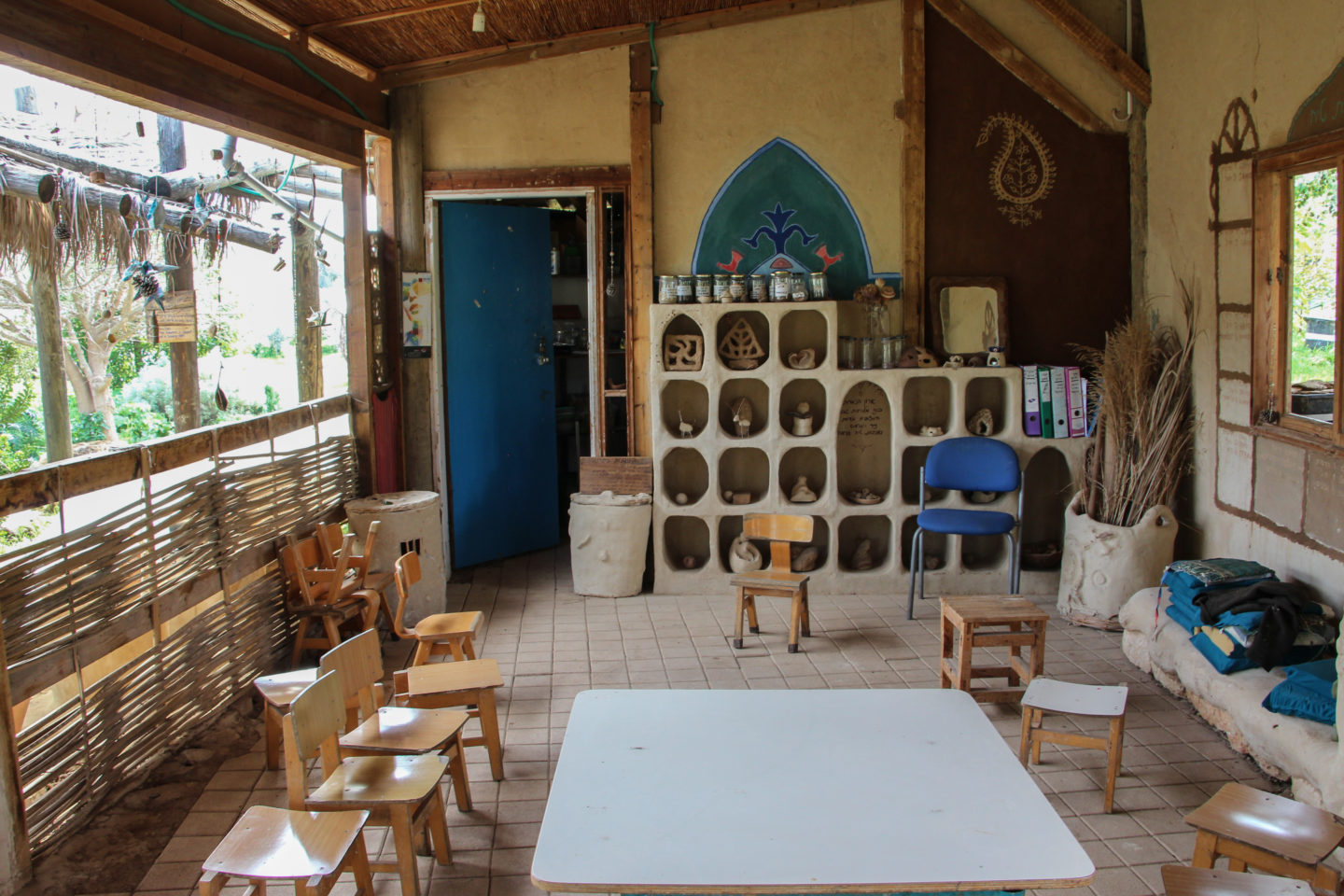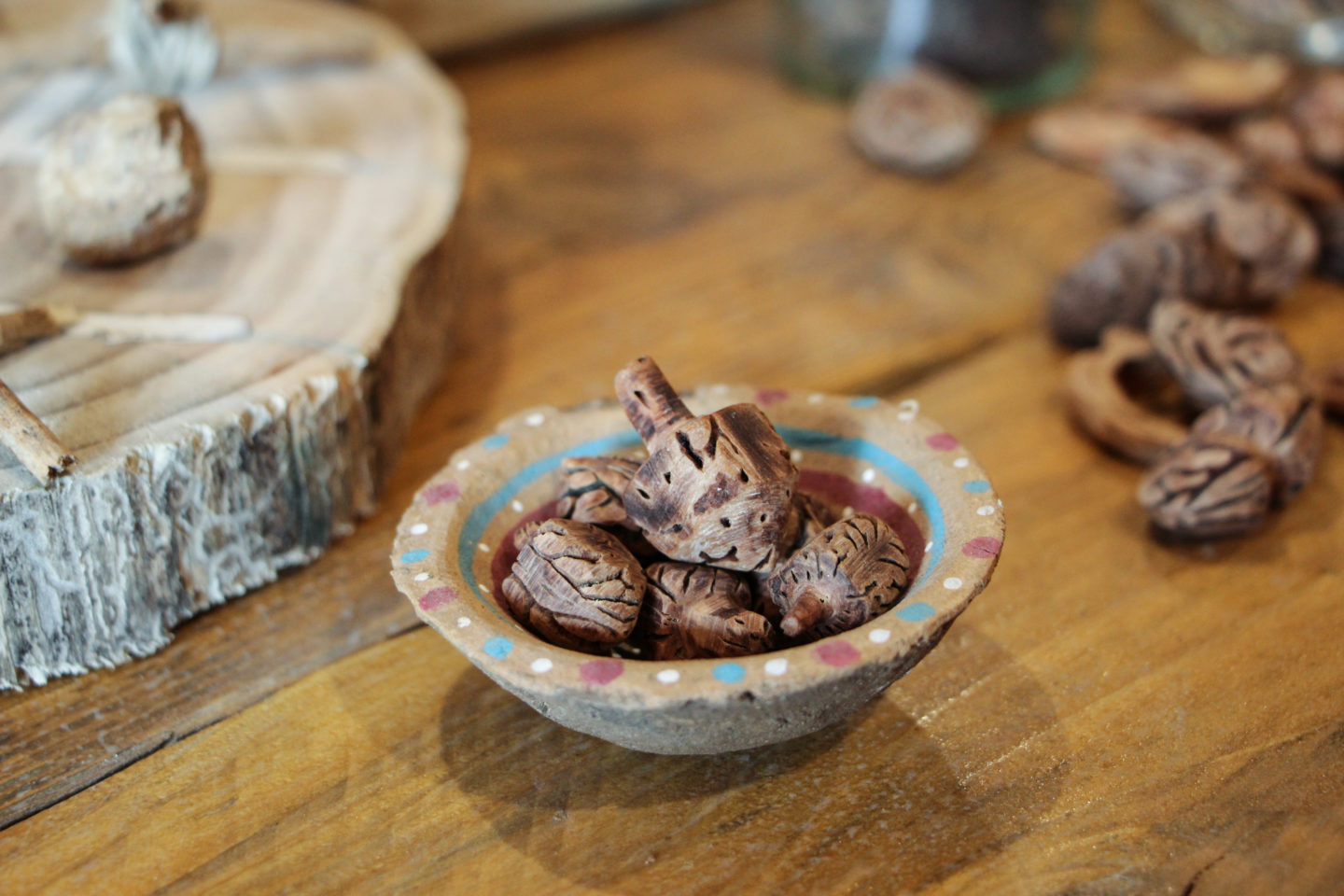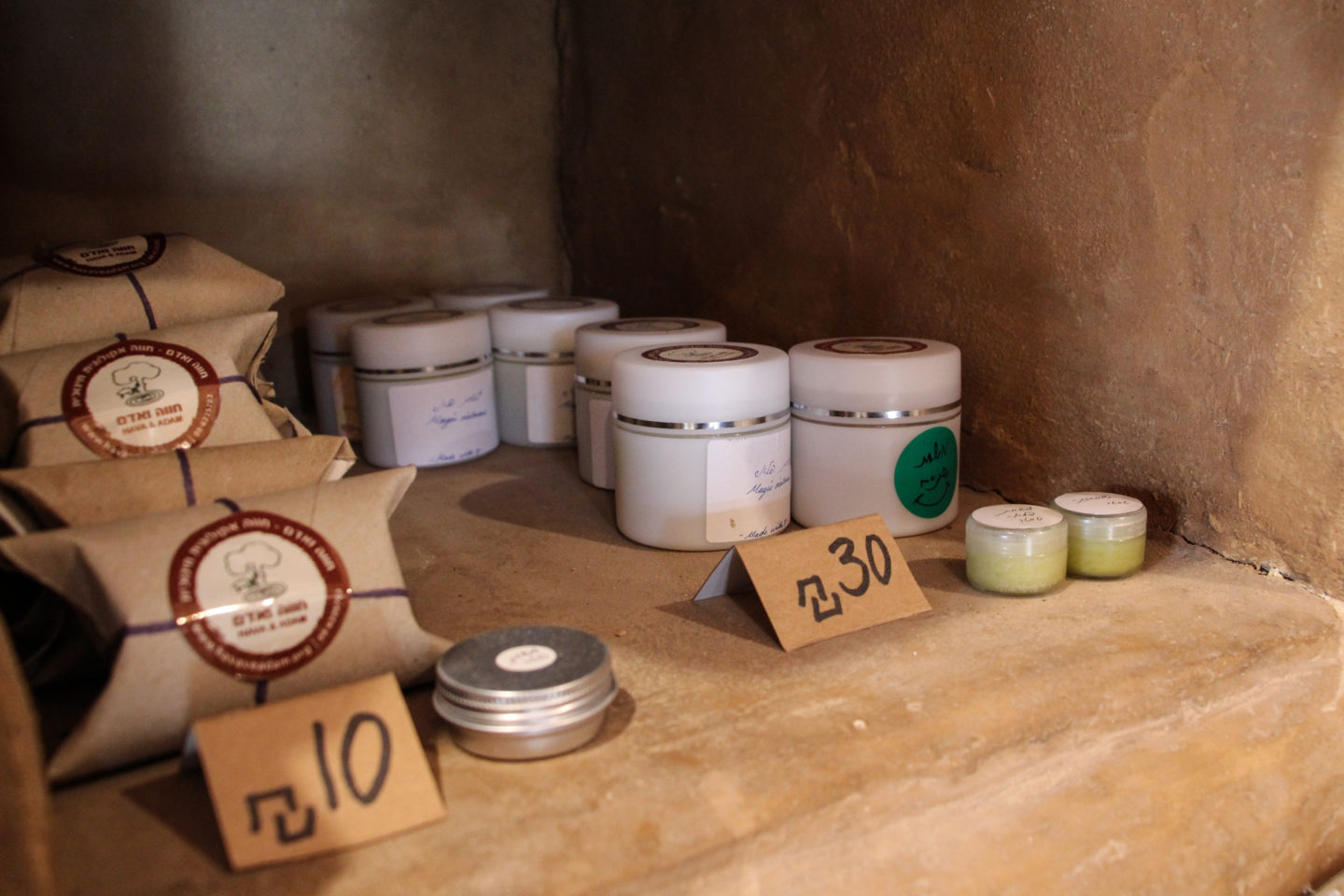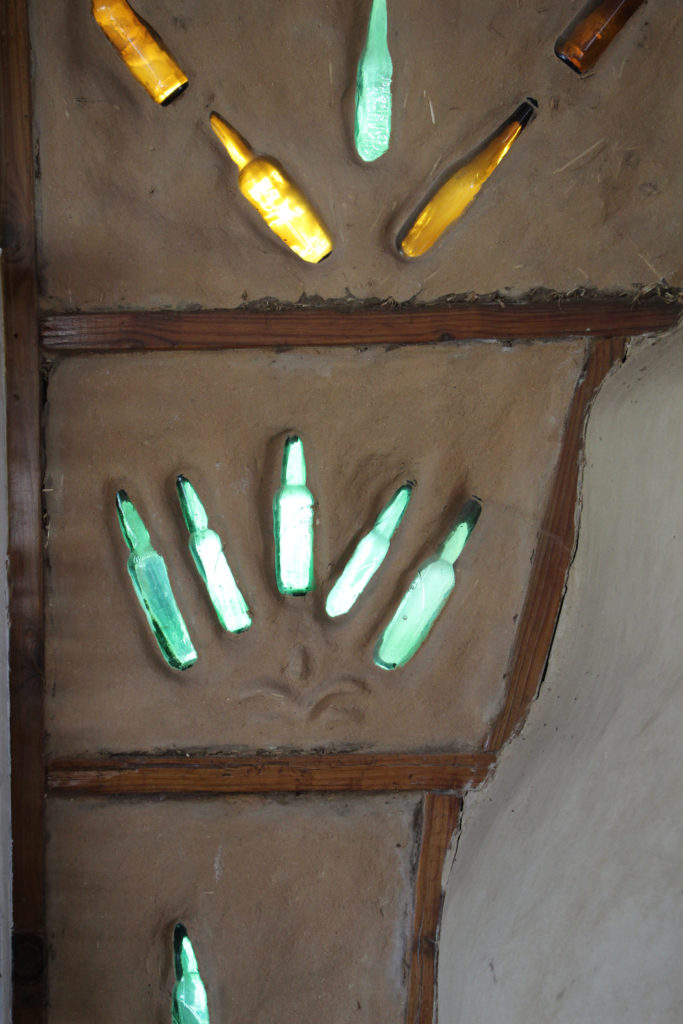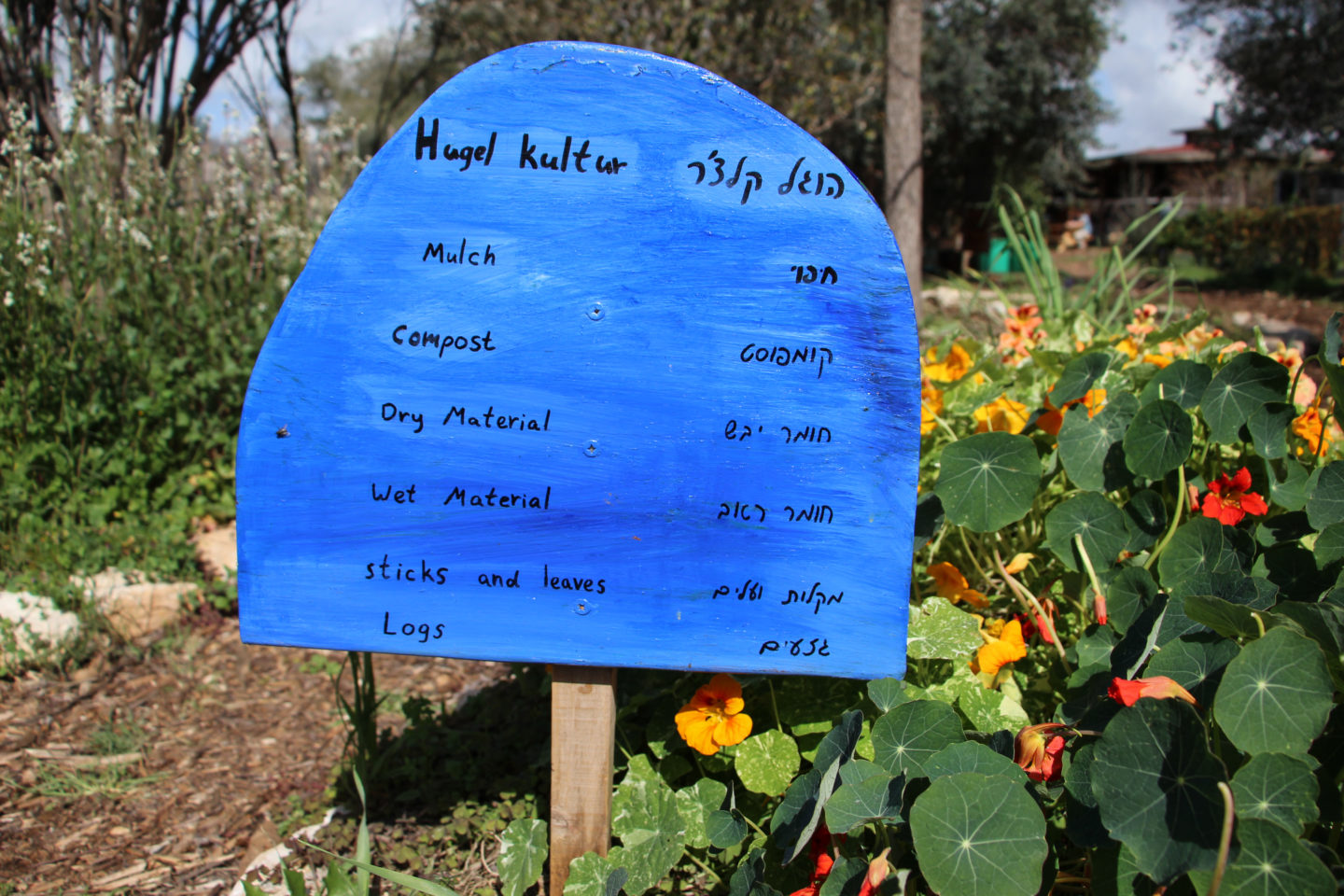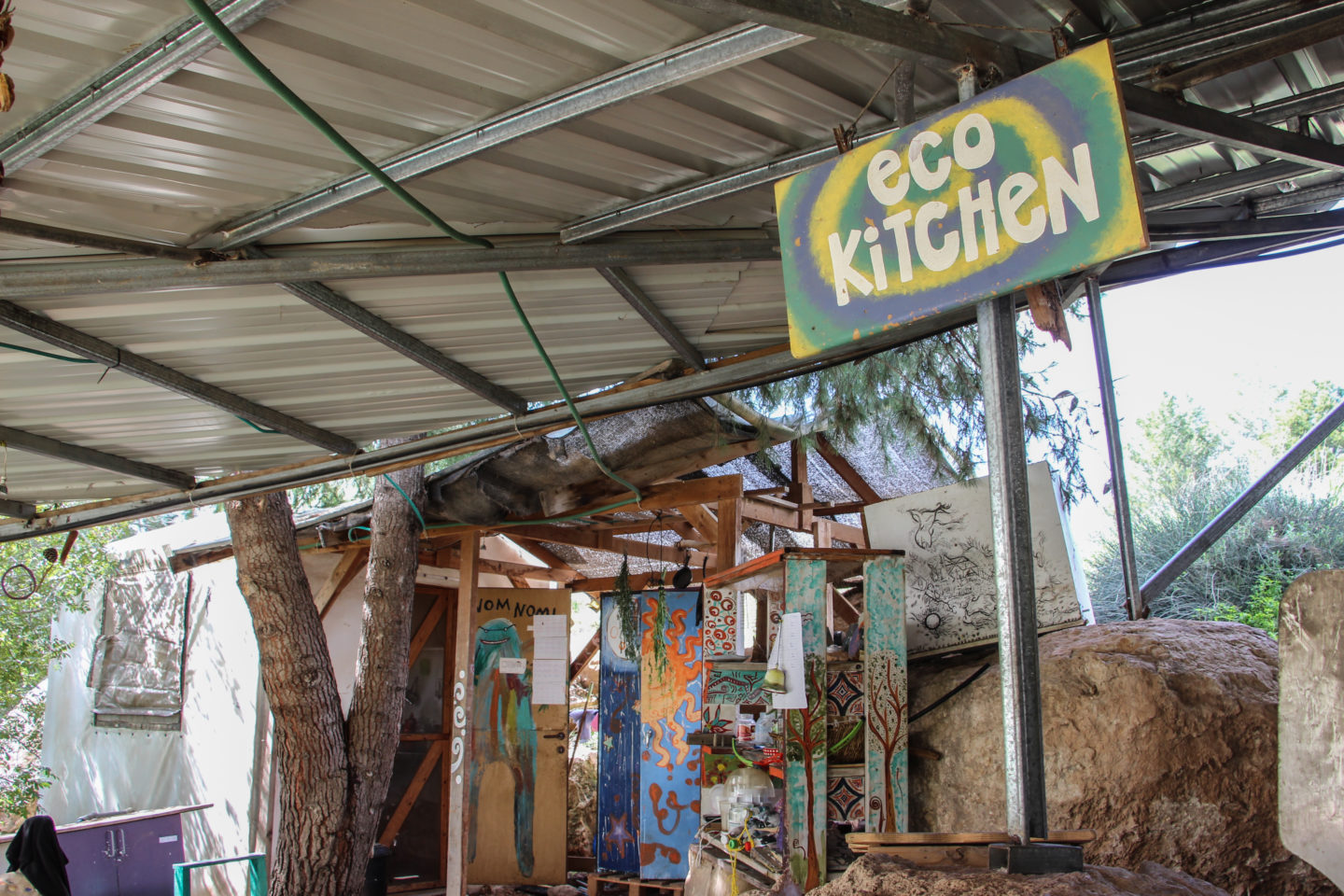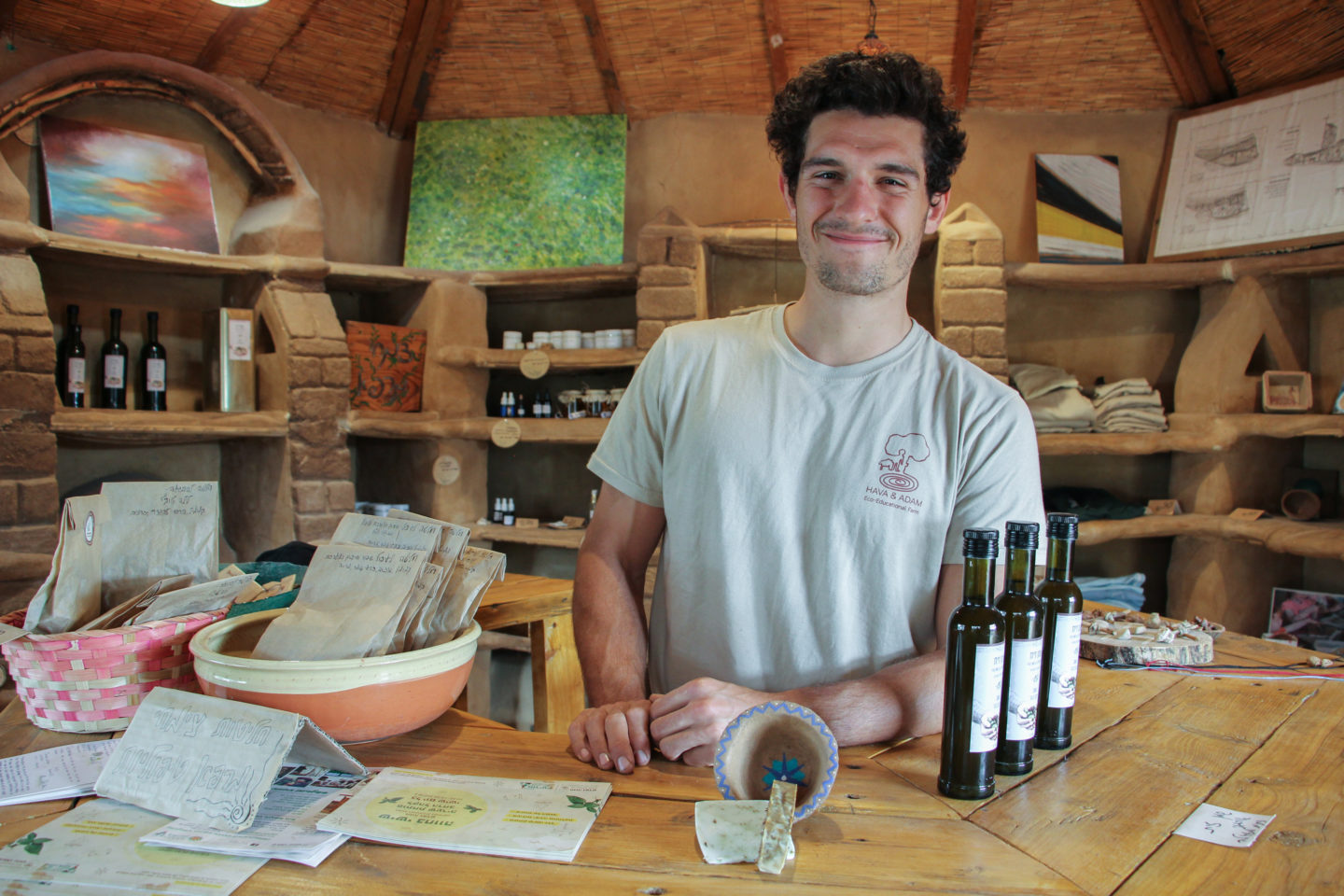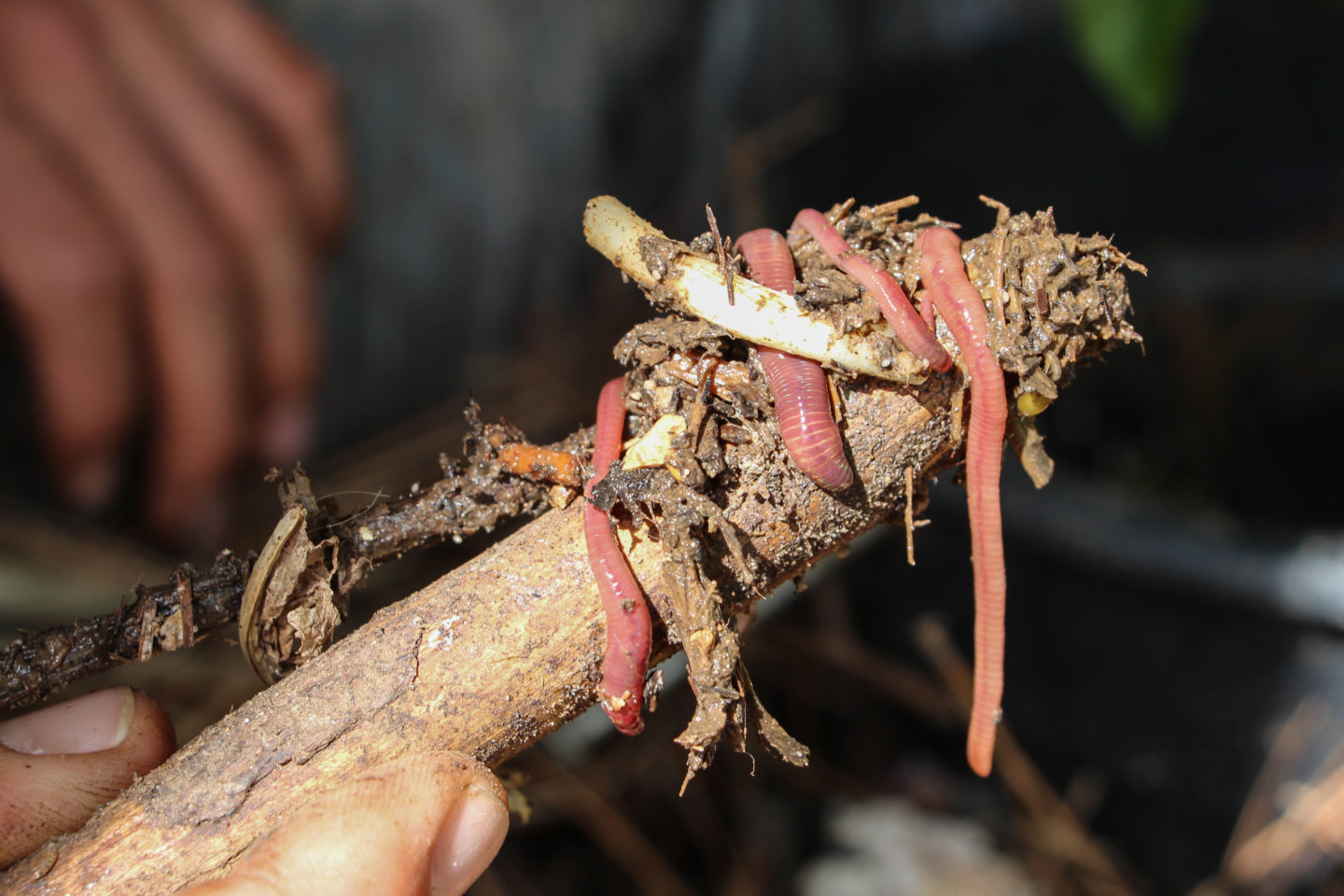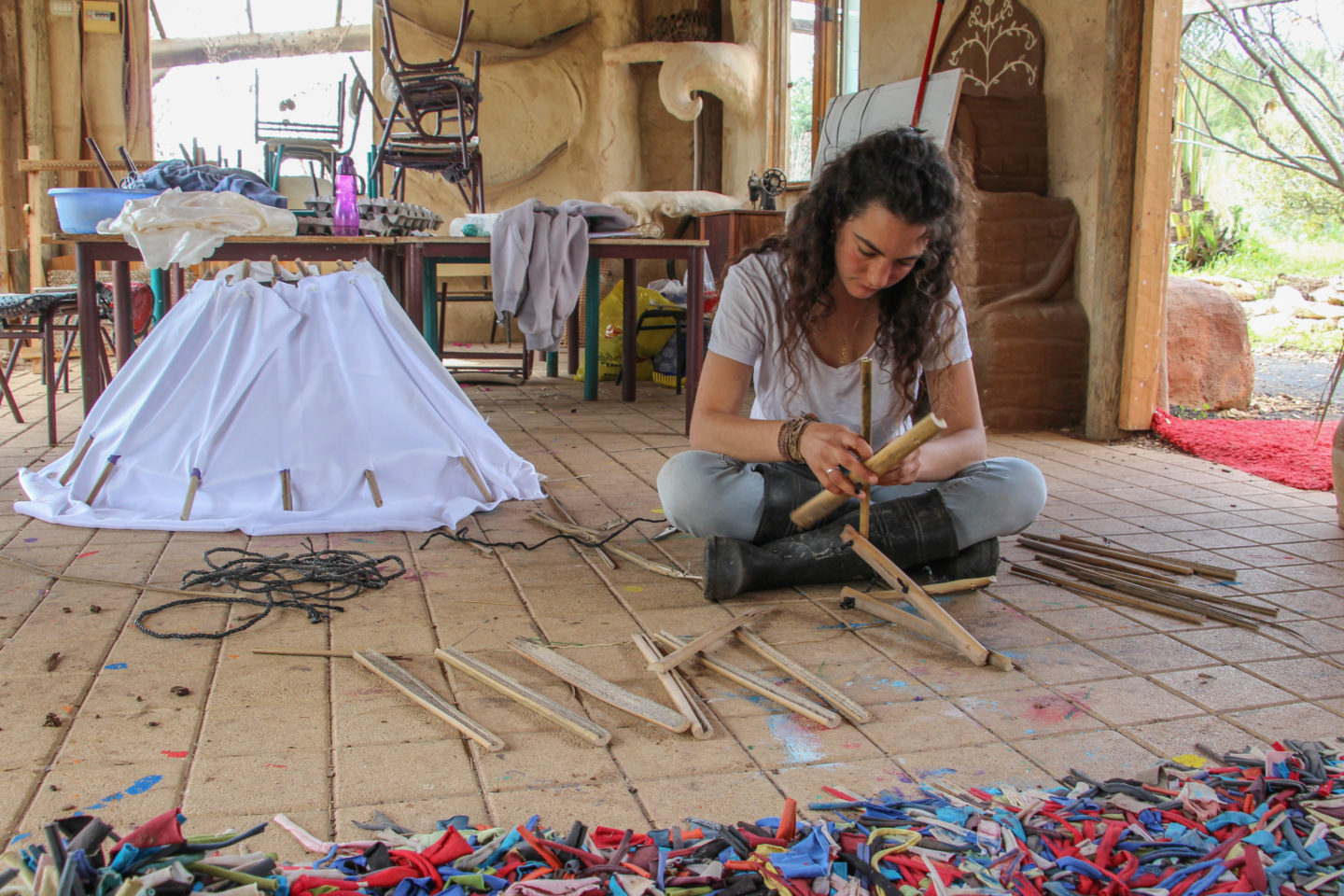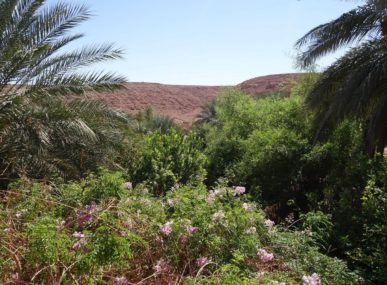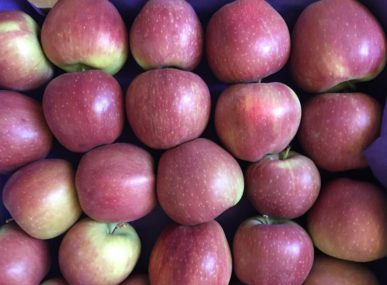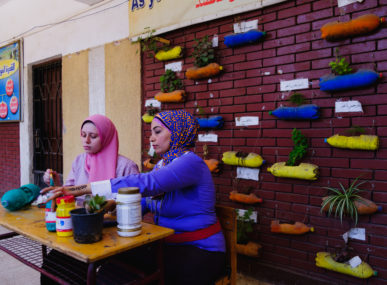Educational, environmental experiences:
The farm’s flagship experience is its five-month Eco-Israel program, where youth aged 18 to 30 come from around the world to learn about permaculture, sustainable living, natural medicine, and more. Eco-Israel has now had 20 cohorts, and more than 190 participants from around the world.
Jonah Goldman is one of them, and has since graduated from participant to teacher. Arriving at Hava ve Adam two years ago from Colorado, Jonah Goldman is a Program Coordinator and Farm Developer on the site. An energetic 25-year-old who darts around the farm with a friendly shalom to passersby, Goldman is one of around 12 team members who work on the farm’s many projects.
In addition to Eco-Israel, the Hava ve Adam offers a two-month Work the Land internship, a Team Leaders program to teach leadership and facilitation skills to Eco-Israel program graduates, and hosts Israeli youth who are doing a year of service before their mandatory army time, or their national service in lieu of that army service.
A natural classroom for all:
As it did from the very beginning, Hava ve Adam still works with young kids from the surrounding area, inviting elementary schools to the farm for an outdoor classroom experience. They can run around the hills, identify and sample edible plants, and interact with science and nature in a way that goes far beyond theoretical classroom lessons.
“One of the main educational takeaways from those experiences is respecting nature and honoring the place you’re in,” says Goldman. “We also want them to recognize that they are a guest in this new environment and that you have to leave it looking beautiful.” Hava ve Adam’s team also works with around 5,000 students each year, helping schools construct a garden on their property.
The ability to work with the public, young and old, was something that attracted Idan Eliakim, one of the farm’s very first permaculture teachers. Arriving in 2006, Eliakim was attracted by the potential for the farm to become a larger-scale, public education place for families across Israel.
“I wanted to be at the place where permaculture was developing, and where you would have the resources, the interests, and the people coming here,” says Eliakim over lunch. Today, one of the main points of public interaction is the Israeli Permaculture Gathering, an annual meeting that draws hundreds from across the country.
